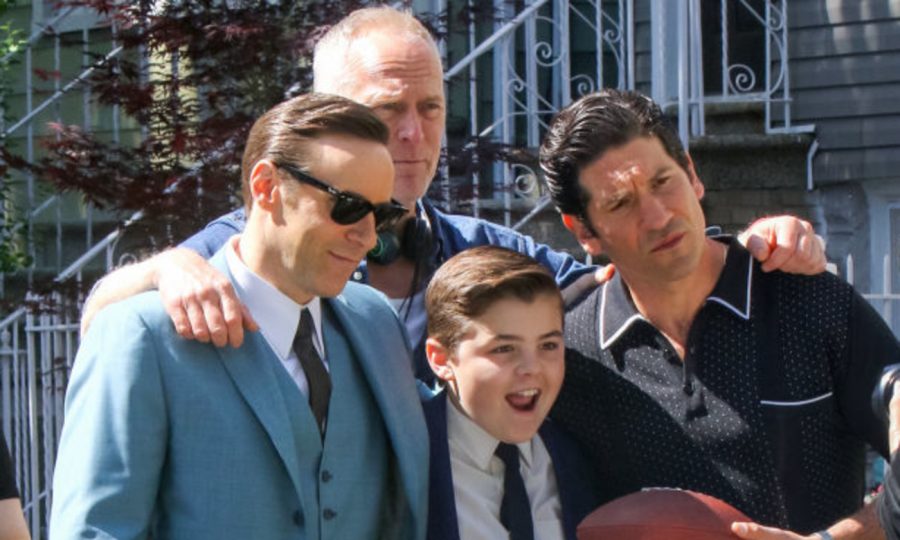New crime film points to trailblazing predecessor
“The Many Saints of Newark” was inspired by the groundbreaking success of “The Sopranos”
September 30, 2021
This week, the hotly anticipated new crime film, “The Many Saints of Newark”, hit theaters after having been delayed for over a year due to the COVID-19 pandemic. The movie is finally getting its chance to hit the silver screen, which means more than you may realize.
You see, “The Many Saints of Newark” is more than your standard crime drama. It is a prequel film to the critically acclaimed and incredibly impactful television series, “The Sopranos.”
Gracing the small screens in the early 2000s, “The Sopranos” told the story of New Jersey crime boss Tony Soprano, played by the late James Gandolfini. The show ended up radically changing television by expanding the medium to look more like what viewers saw in theaters, with better-developed cinematography, directing, writing and characters, all of which revolutionized the programming view today.
TV up until “The Sopranos” was pretty one dimensional in how it approached many topics, as there was no guarantee an audience would tune in every week to watch a network’s one show. This left executives forced to cram their story into individual episodes, with only the occasional season-long narrative. This left no room for anything complex, so a casual viewer would become lost if they missed an episode.
“The Sopranos”, however, was not on regular cable. Instead, the show premiered on HBO, which realized that, due to its subscription-based service, audiences would be more inclined to watch every episode of a series, and even if they did miss one, they could easily go back and watch it. If this sounds familiar, this is exactly what inspired Netflix and the other streaming giants of today.
This change in medium allowed networks to spend more time developing storylines and characters. They could flesh them out more because they knew the audience would watch it all unfold. This is also how we came to get the character of Tony Soprano, who was a definite anti-hero. He was a father, a son, a crime boss, a murderer and a person who struggled with mental illness.
That networks will create such a complex character with such an intricate and internal issue without losing audience engagement was revolutionary. We were allowed to watch how a character like Tony Soprano approached the world and how he justified all his actions, whether he was ordering a hit on someone, cheating on his wife or stealing from a friend. A lot of the time, the audience was even treated to a nuanced therapy session or to a flashback from Tony’s past to show us how this figure came to be and how he rationalized his devious deeds.
This is what makes a compelling anti-hero who the audience finds themselves rooting for even when they have very few redeeming qualities. A striking example of this is in the series’ fifth episode, “College”, where we watch Tony Soprano murder an informant whom he happened to run into while visiting colleges with his daughter. This was a cold-blooded act and did not serve the crime organization in any way. Instead, it was a personal decision made while Tony was spending time with his daughter.
This episode, in fact, worried the HBO executives. They felt the audience would turn on Tony for doing such a thing. However, series creator and writer David Chase stood by his decision and was rewarded when the audiences and critics praised the episode, noting their expectations that Tony might do something like this and therefore, in watching the episode, their suspicions were indeed confirmed.
Rooting for a mob boss was not new, though, given the love and admiration for films such as “The Godfather” and “Casino”. Now, however, people were watching a powerful character act out in a truly human fashion in the comfort of their living room. It felt like they were watching a masterpiece of film on their TV every week. Therefore, I say that without “The Sopranos”, you don’t get Walter White or Dexter. You don’t get the shows audiences clamor for today like “The Crown” or “Stranger Things”, After all, these programs based their stories on the concept that an audience is invested in every episode.
I am excited to see how Chase takes this beloved material and transforms it into a movie, and I have no doubt that it will be just as compelling and amazing as the show.






















